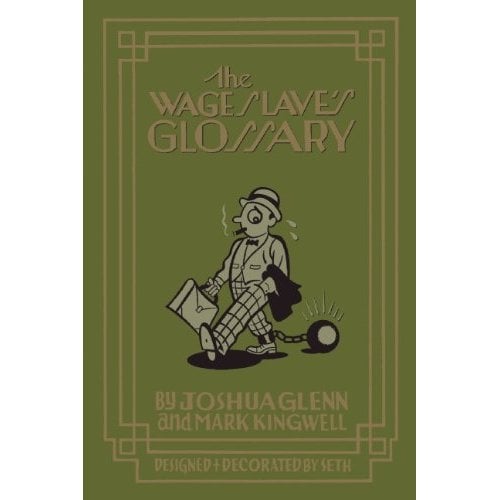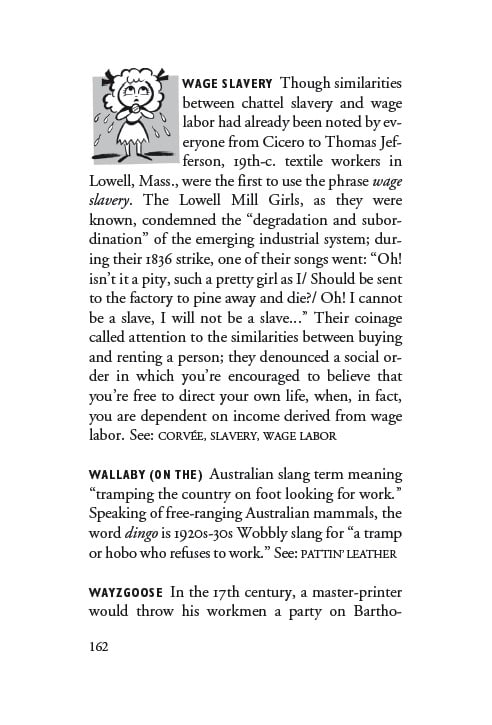Wage Slave’s Glossary
By:
September 4, 2011

In the Sept. 4 issue of The New York Times‘ Sunday Review, Robert B. Reich urges policy makers to boost the purchasing power of the middle class by improving public schools and public transportation, expanding access to early childhood education and higher education, maintaining strong labor unions, enlarging safety nets, requiring big companies to pay severance to American workers they let go and train them for new jobs, pegging the minimum wage at half the median wage, raising taxes on the rich and lowering taxes on the poor, and in general spreading the gains of globalization and technological change more equitably. No good liberal could disagree with this formula. However, will boosting the purchasing power of the middle class truly make America (as Reich argues, in his essay’s conclusion, via a quote from James Truslow Adams) “a land in which life should be better and richer and fuller for everyone?”
Joshua Glenn and Mark Kingwell, the authors of The Idler’s Glossary and The Wage Slave’s Glossary, beg to differ! A better, richer, fuller life for all has little to do, they insist, with increased purchasing power.
Elsewhere in the Sept. 4 issue of the Sunday Review, Teresa Amabile and Steven Kramer (authors of The Progress Principle) announce that their research, conducted over the past decade, indicates that “workers perform better when they are happily engaged in what they do.” Pressure doesn’t enhance performance; making progress in meaningful work does. Sounds good; so do such sentiments as “Work should ennoble, not kill, the human spirit.” But the authors of The Wage Slave’s Glossary beg to differ with Amabile and Kramer’s solution to the “disengagement crisis.” To wit: “Workers’ well-being depends, in large part, on managers’ ability and willingness to facilitate workers’ accomplishments — by removing obstacles, providing help and acknowledging strong effort.” And “Fostering positive inner lives sometimes requires leaders to better articulate meaning in the work for everyone across the organization.” No! Workers’ well-being depends, in large part, on managers themselves being removed; and positive inner lives are fostered by work that is actually meaningful, as opposed to meaningless work garnished with a portentous mission statement.

As previously announced in greater detail, HILOBROW’s Joshua Glenn and Mark Kingwell have collaborated on a sequel to The Idler’s Glossary (Biblioasis, 2008). Available for pre-ordering now, The Wage Slave’s Glossary (Biblioasis) criticizes and analyzes what the Lowell Mill Girls were the first to name wage slavery, not to mention what Kingwell calls the work idea itself. The book comes out on September 20.
Here’s a sneak peek:

You should also check out The Idler’s Glossary, a previous volume by Glenn and Kingwell. Both books are wittily illustrated by the great cartoonist Seth.
